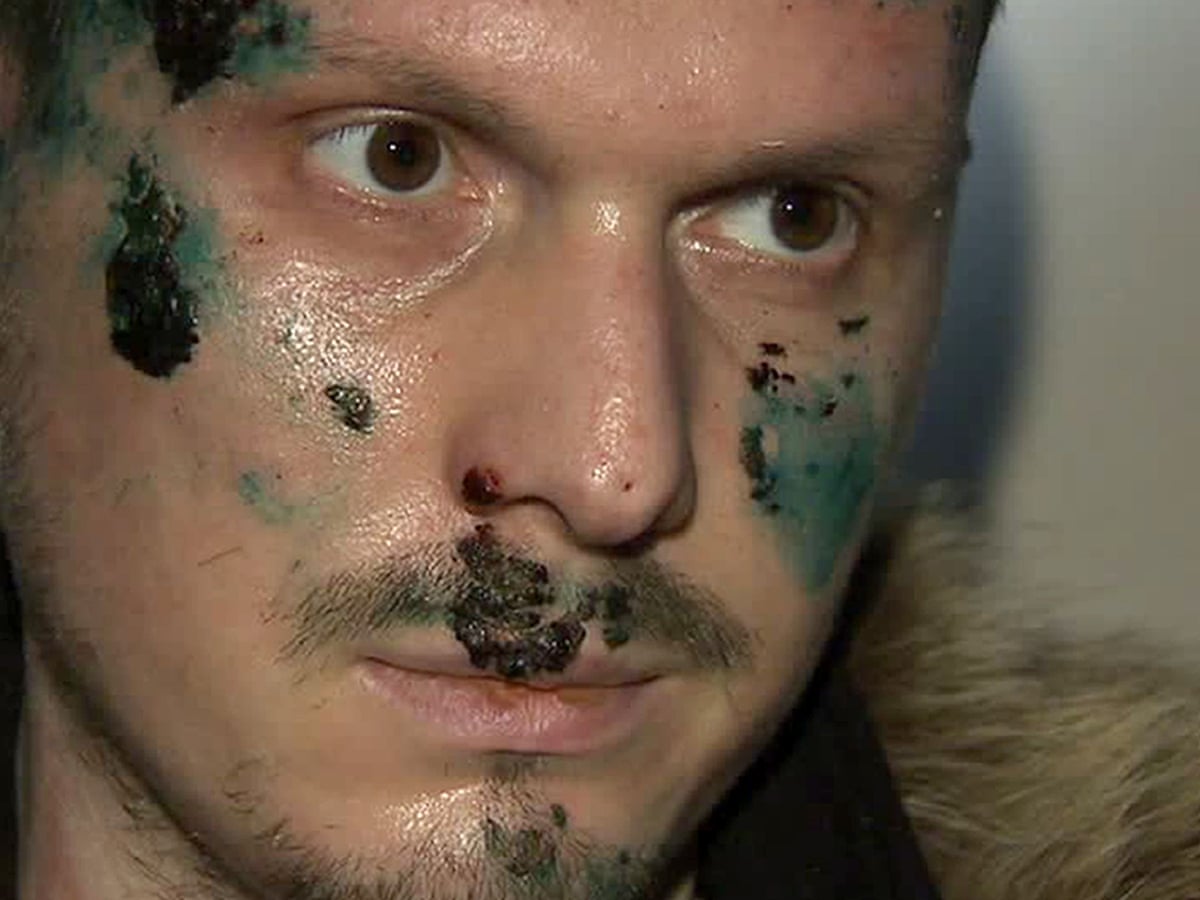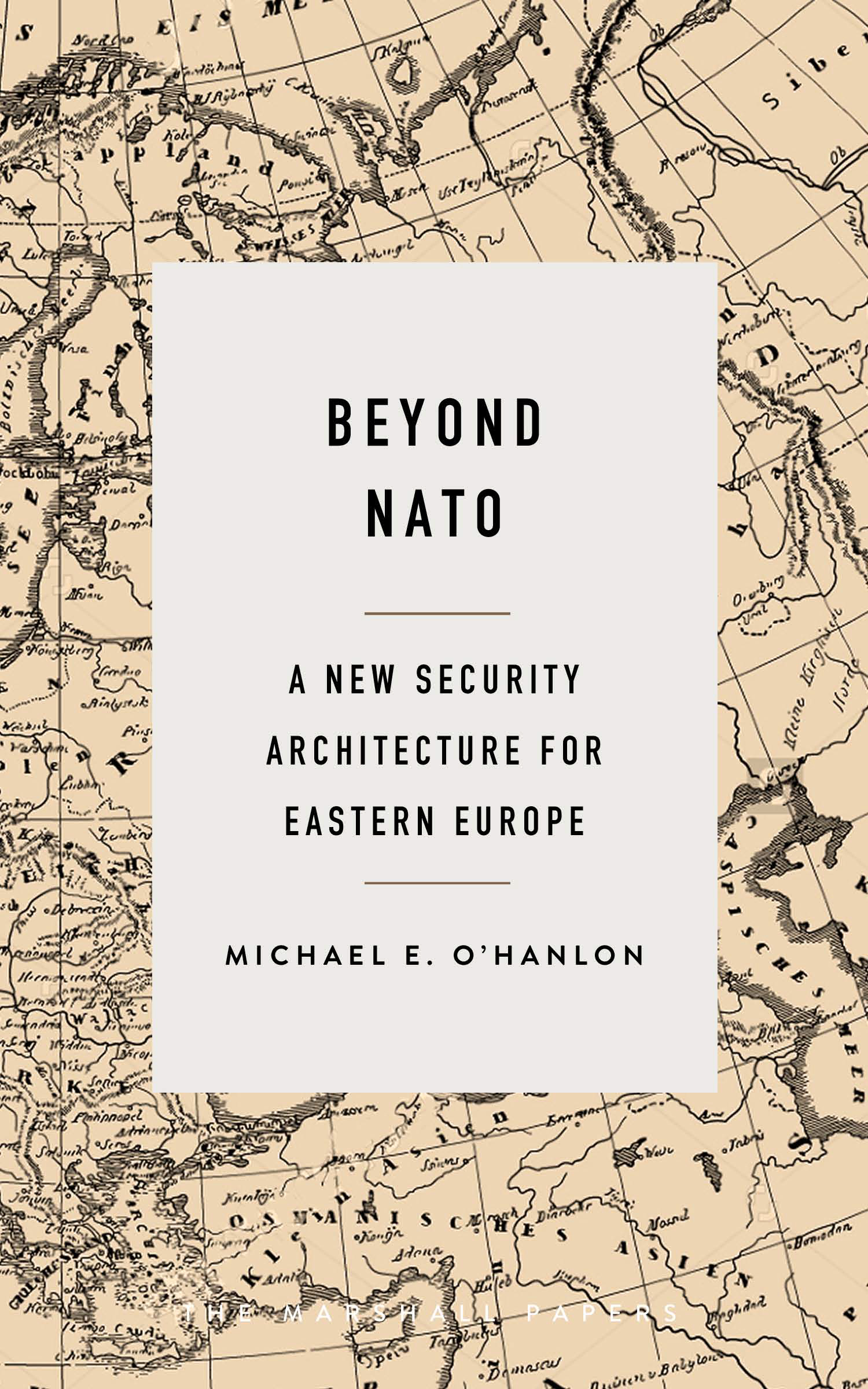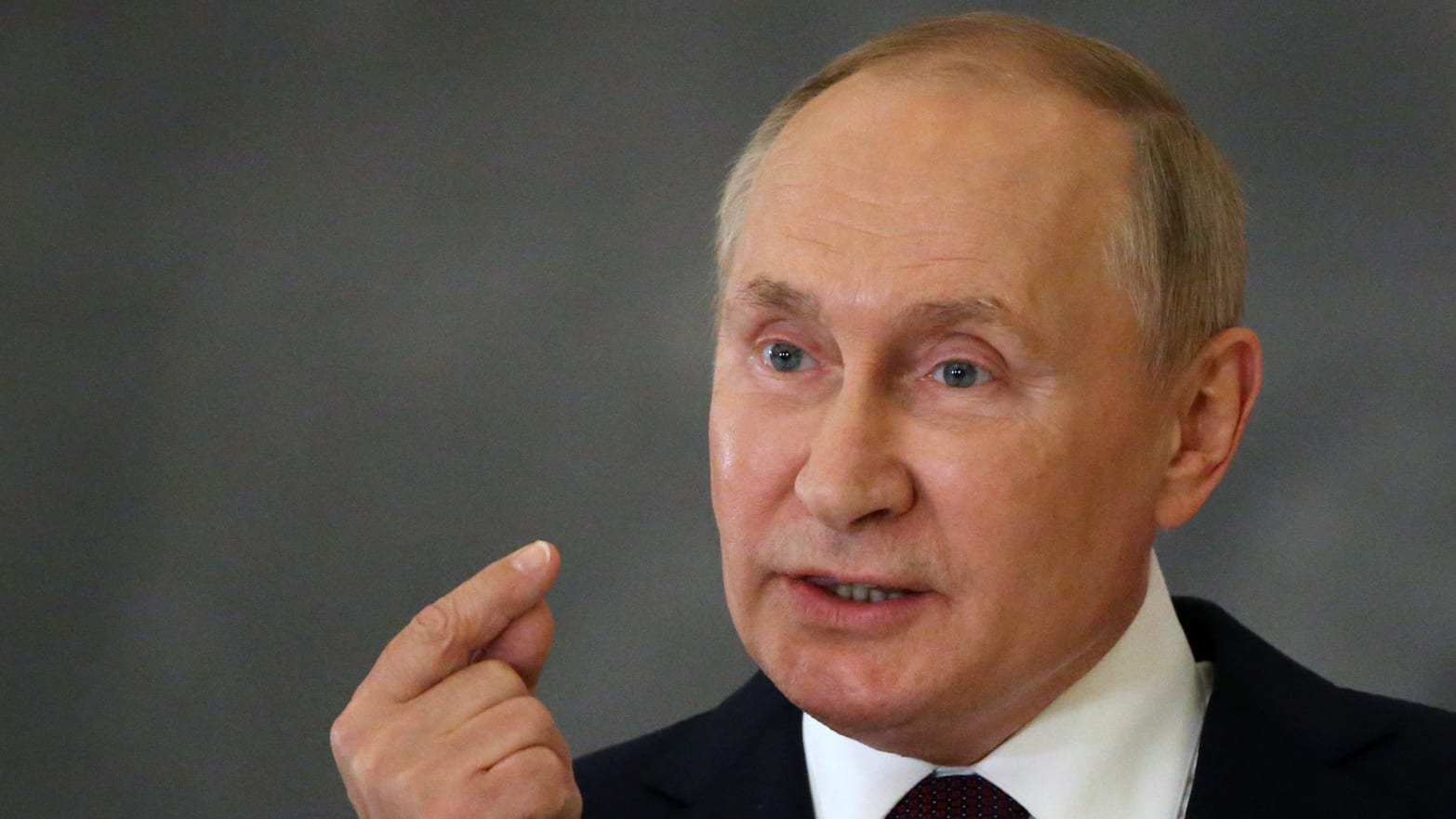Putin's Hail Mary - On February 24, Vladimir Putin launched the Russian army for what he called a "special military operation," his euphemism for a massive invasion of Ukraine. Two weeks later, the Russian army has failed to live up to expectations, thanks in large part to the courage and tenacity of the Ukrainian army.
Steven Pifer Nonresident Senior Fellow - Foreign Policy, Center for the United States and Europe, Strobe Talbott Center for Security, Strategy and Technology, Arms Control and Nonproliferation Initiative
Putin's Hail Mary
The fighting could last for weeks or more and cost more lives than the thousands already lost. The Kremlin has made maximalist demands as the price of a ceasefire and did not respond favorably when Kyiv hinted at any willingness to compromise. The key question: will Putin agree to real negotiations, or will he continue with his election war?
Rostec Presented To President Vladimir Putin The Checkmate, The New Russian Sukhoi 5th Generation Fighter
Putin justified the invasion with a myriad of falsehoods: people in Donbas in eastern Ukraine had "experienced humiliation and genocide"; Russia tried to "denazify Ukraine" after neo-Nazis took power in Kyiv; and Ukraine had "gone so far as to pursue nuclear weapons." The lie that Kyiv was seeking nuclear weapons was particularly damaging; in the 1990s, Ukraine gave up the world's third-largest nuclear arsenal, inherited from the Soviet Union, largely because Russia promised to respect Ukraine's territorial integrity and not use force against it.
The Russian army launched into Ukrainian territory from several directions. After two weeks, Russian forces have made progress in the south, occupying Kherson and isolating Mariupol. In the north, however, the Russians have a more difficult time. The Ukrainians quickly beat back the attempt to take Kyiv and fought fiercely in defense of Chernihiv and Kharkiv.
The fighting has taken a heavy human toll. As of March 9, the UN estimates that more than 500 civilians have been killed (probably a vast undercount) and around 2.1 million refugees have fled the country. attacks on major cities. The war also cost Russia. The Ministry of Defense reported on March 2 that around 500 Russian soldiers had been killed. On March 8, the Pentagon estimated, albeit with "little confidence," that the war had claimed the lives of 2,000 to 4,000 Russian soldiers.
If the Kremlin was surprised by the army's underperformance and the Ukrainians' determination, it was equally surprised by the West's response. NATO has deployed thousands of troops in the Baltic states, Poland, Romania and Bulgaria. The US, EU, UK, Canada and others, including Switzerland, Singapore, Japan, Australia and New Zealand, have imposed major financial and other sanctions against Russia, including its central bank. The ruble collapsed and the central bank doubled its key interest rate to 20% in anticipation of the coming inflation spike. On March 8, President Joe Biden announced that the United States will ban imports of oil, natural gas and coal from Russia.
The Recount Hail Mary
Perhaps most shocking to the Kremlin were the changes in Germany, which wiped out five decades of policy toward Russia in a week. Berlin stopped the Nord Stream 2 gas pipeline; changed a policy of not delivering weapons to conflict zones to send weapons to Ukraine; and dramatically increased defense spending. Germany will meet the NATO-agreed target of 2% of gross domestic product for defense in its next budget (as opposed to years later) and add a one-off surplus of €100 billion for military needs, more than double what it spent on defense 2021.
Russian military operations appear aimed at taking much or all of Ukraine east of a line running from Kyiv in the north to Odessa on the Black Sea. Russian ground forces have not yet penetrated the western third of the country. Russian units in the north appear to be preparing to attack Kyiv.
The Russian military's operational plan so far has been described by an expert analyst as "bizarre" and does not take advantage of Russian advantages. That said, the Russian military, with about 125 tactical battalion groups in Ukraine, has mass and numbers. If mass and numbers decide who wins this war, Russia will prevail.
/cdn.vox-cdn.com/uploads/chorus_asset/file/15797863/20151005-twitter-project-lightning.0.1462672641.png)
It raises the question of Putin's political goals. If the Russians defeat the Ukrainian army and take Kyiv, Putin will likely install a pro-Russian government. But maintaining that government would almost certainly require occupation by Russian military and security forces. They would face a population that is angry, nationalistic and in many cases armed - and they would resist. Such an occupation could mean a major blow to an economically weakened Russia.
Saint Vladimir: Is There A Religious Angle To The Invasion Of Ukraine?
But war is about more than numbers. It seems the Ukrainians are highly motivated and determined, and President Volodymyr Zelenskyy has come into his own as a true and inspiring wartime leader. So far, the question of whether Russia wins is an "if", not a "when". If the Ukrainians hold on, a result could be a stalemate, with fighting continuing, but neither side being able to dislodge the other. If the military costs pile up on the Russian side, the Kremlin retains the option—even if Putin doesn't want to exercise it—to resign and go home, perhaps somehow declaring victory.
On March 7, the Kremlin's press spokesman presented a series of demands to end Russian military actions: Ukraine must cease military operations, agree to neutrality and include it in its constitution, accept that Crimea is part of Russia, and declare independence from recognizing Russia. the so-called Donetsk and Luhansk "people's republics" in Donbas. Unspoken, but almost certainly on the list, is a new government in Kyiv and an earlier demand for demilitarization.
It is hard to imagine the Zelenskiy government accepting these demands, which would only buy them a ceasefire. (If so, many Ukrainians may continue the fight.) Still, on March 8, Zelenskyy suggested he might stop pushing for NATO membership and was open to a "compromise" on Donbas. He said he would not accept ultimatums and called for real dialogue with Moscow.
The Kremlin did not respond positively to Zelensky's comments. Nothing came of a meeting on March 10 between Ukrainian Foreign Minister Dmytro Kuleba and Russian Foreign Minister Sergey Lavrov in Turkey. If Moscow showed interest in real negotiations with Kyiv, the US and NATO could also renew their offer to negotiate arms control, risk reduction and transparency measures that could make a real contribution to European security, including Russia's. The West could also make clear that if Russian forces left Ukraine, sanctions would be lifted (although the West could retain some sanctions to ensure Moscow's compliance).
U.s. Inf Treaty Pullout Plays Into Russia's Hands
An attempt at a settlement could thus go along three tracks: a negotiation between Kyiv and Moscow, a negotiation on measures to increase Europe's security and a discussion on sanctions. But those tracks have nowhere to go without a change in the Kremlin's attitude.
Will Putin rethink his goals? On its current course, a military "victory" appears to mean years or decades of occupation of a hostile, anti-Russian Ukraine, political isolation from most of the world, and economic sanctions that will devastate Russia's economy. You would think there must be a better option.
A Guide to Coping with the End of the Post-Cold War Era. Read full Order from Chaos content » Moscow is frantically pushing a 'disjointed' plan to stem the onslaught of humiliating Russian losses in the war.

After weeks of setbacks on the battlefield in Ukraine, Moscow appears to have bowed to pressure and is moving ahead with a new phase in the war: urgent "referendums" to annex stolen Ukrainian land and harsh prison terms for rebel troops.
Is Russia Escalating To De Escalate?
The double whammy began on Tuesday with the announcement that Russia's State Duma has passed legislation imposing tougher penalties on any troops who "voluntarily" surrender to the front line or refuse to obey orders.
Deserters can face up to 15 years behind bars, while those who surrender face up to 10 years in prison. Those who refuse to obey their commander's orders risk three years.
The legislation, which also adds the concepts of "mobilization, martial law and wartime" to Russia's criminal code for the first time, is widely seen as the first step toward full mobilization.
Following unanimous approval by the State Duma, the legislation will be sent to the Federal Council on Wednesday, according to state media. With the Bundestag also expected to come on board, the new prison sentences will come into effect when Putin signs the bill – which could happen as early as Wednesday.
Mueller Warns Of Russian Sabotage And Rejects Trump's 'witch Hunt' Claims
Oddly enough, the legislation was already marked as approved at all stages in the government portal on Wednesday afternoon.
While the move is widely seen as a way for the Kremlin to bolster troops, it was almost immediately met with panicked calls for Russian troops to end the war now before it's too late.
"We call on Russian soldiers on military bases and at the front to refuse to participate in the war

Project hail mary review, project hail mary, project hail mary audiobook, hail mary s, the hail mary project, hail mary book, project hail mary book, hail mary andy weir, hail mary dessert, hail mary snacks, project hail mary summary, hail mary


0 Comments